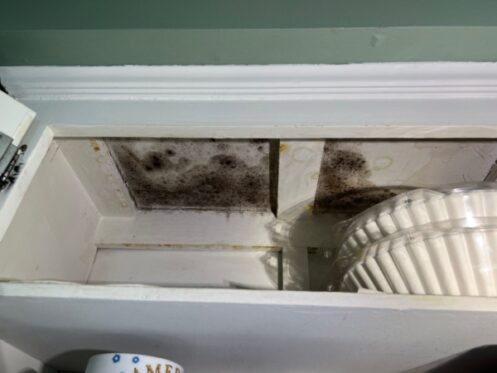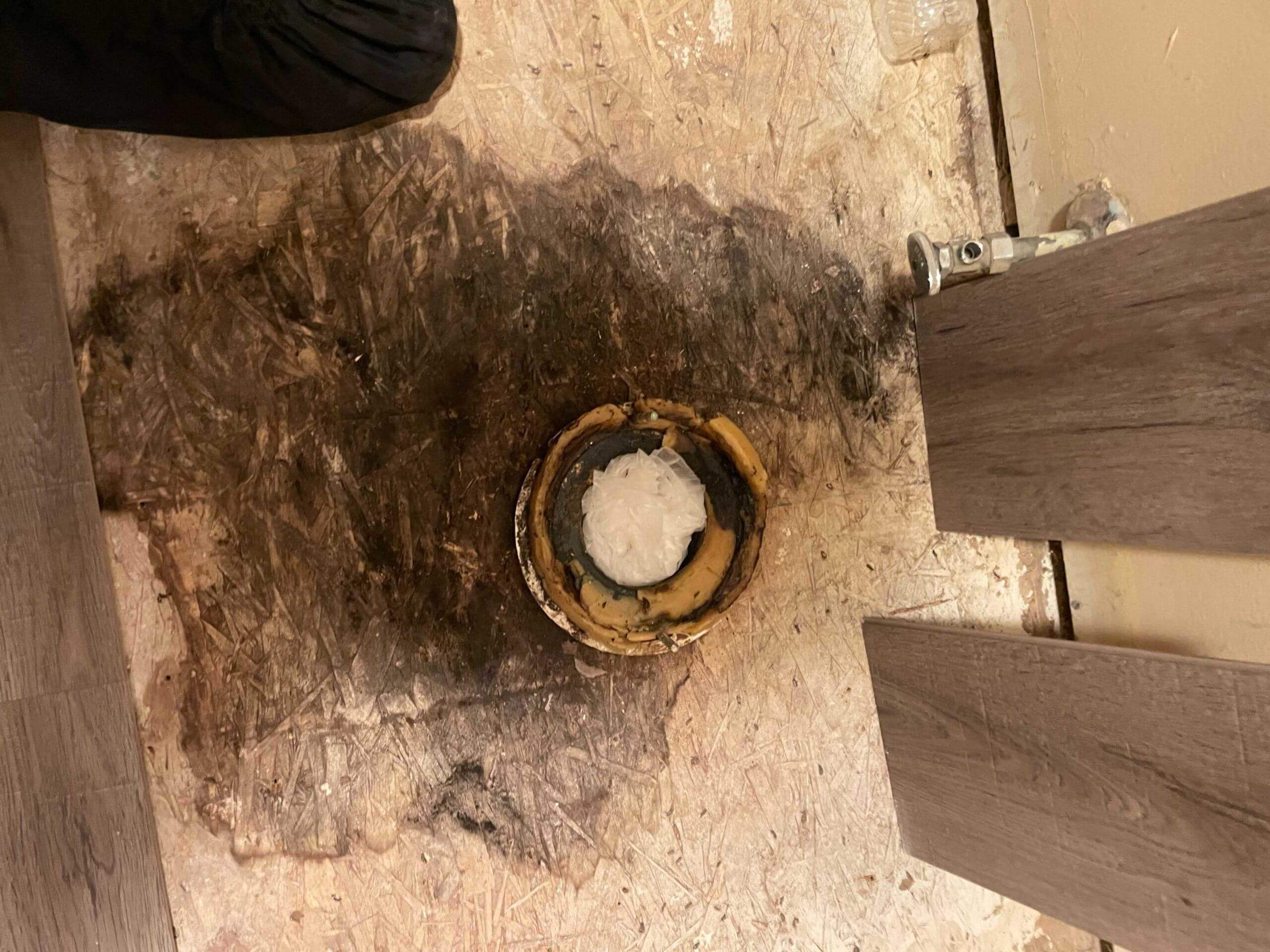Mold in Pipes vs. Mold in Drains
When it comes to mold, there are two issues that homeowners need to be aware of. One is moldy drains that have a sour smell. The other issue is a water system that has been contaminated with mold. You have quite a bit of control over the drain mold but less control over mold in piping.
How Mold Grows in Drains
In normal conditions, your pipes are sealed environments, so you feel comfortable enough to bathe and wash our hands in what comes out the tap. Normally, mold only has moisture and oxygen to allow it to grow in your pipes. Mold also needs something organic to feed on. That is why it is more common for mold to grow in drains than in pipes.
Types of organic matter that can end up in sink and tub drains include:
- Hair
- Lint
- Food scraps
- Flakes of skin
The drains in your home have p-traps. They keep you from having to smell what is down in the sewer pipes. The problem is that the p-traps collect this organic matter from people’s food and bodies. The moisture, air and organic matter give mold the conditions it needs to colonize. A sour smell is a signal that you have mold in your drain. The mold can also congregate around the top of the drain.
How Mold Grows in Pipes
It is less common for a residential water system to have mold in the piping. There are a few possible causes. People who have their water sourced by a well are the most likely to end up with mold in their water system. This can occur when there is damage to the well’s cap or if the seal for the well is not working. Any leak in a pipe can allow mold to develop and intrude into the water system. Leaks in pipes can then create the conditions for mold in walls and on floors. There is only a tiny possibility that your municipal water supply could have a mold issue.
How Bad Can Mold in Drains Get?
If the drains are moldy, there is also enough accumulation of matter to also risk a clogged drain. The mold will place you at risk of exposure to airborne mold spores. The mold can accumulate in the sink around the drain.
How Bad Can Mold in Pipes Get?
If mold has enough organic matter to build colonies upon, it can be present in your washer, taps, ice maker, water softening system, and water storage tanks. When this is beginning to occur, a sour smell will be present in the water. Then, you will see mold growth around valves and faucets. Another troubling sign of mold in water pipes is when there is mold in your toilet tank and bowl. What accumulates in the bowl will also tend to settle around the floor near the bowl.
If you have any of these signs, check your home water storage tanks as well. If they smell sour and musty, you have a serious mold problem in your pipes. By this point, you may be able to smell mold in your hair after showering. All of this mold can get into the home’s air supply and ductwork, too. There is quite a bit more for mold to feed upon once airborne, like your walls, fabrics, and furniture.
Dangerous Health Effects of Airborne Mold
Airborne mold can cause the following symptoms:
- Sneezing
- Sinus infections
- Headaches
- Greater susceptibility to colds
- Nausea
- Coughing
Drinking water from moldy pipes is even more toxic to your bodies. The toxins that are airborne are going to spread throughout your house. Just filtering the water will not solve the issue. At this stage, serious steps must be taken to remove all mold from the pipes and remove the source of mold. If you are experiencing any of these household or physical symptoms, call us at Pur360. We are experts in diagnosing and removing mold and its sources from your home. We don’t use toxic chemicals, and we only remove mold-damaged items when there is no other option.
How to Prevent Mold in Drains
One of the easiest and most economical ways to keep organic matter out of your water pipes is to purchase mesh traps for your bathroom sink, tub, and kitchen sink. They fit just over the drain so that hair, food, and other organic matter can’t go down the drain. It is a simple matter to regularly dump the contents in the trash and clean the mesh. Even then, some organic matter still may get into the p-trap.
If you have not purchased a mesh drain trap, you likely have a mess in your p-traps. In the shower and bathroom sink, you likely have wads of hair that are moldy and oily. In the sink, there is usually a mess of food debris, unless you have a garbage disposal. You can prevent mold buildup and drain clogs with a simple plumber’s snake from the hardware store. You run the snake down the drain and take out the organic matter. The snake will usually work even if you already have a clog.
You can freshen the drain and kill the mold naturally with just baking soda and vinegar. If you add half a cup of baking soda to your drain and then add 2 cups of white vinegar, there is a powerful foaming and cleansing reaction. It is best to temporarily cover your drain. Leave the mixture as it foams in the drain, then follow that with 6 cups of hot water. (If you have plastic pipes, don’t use boiling water.) This will kill the mold naturally and leave the drain fresh.
If you have a garbage disposal, plug the drain and fill the sink with warm, soapy water. Unplug the sink, and run the disposal as the water drains down. Cutting up a lemon and running it through the disposal is also a great natural disinfectant and deodorizer.
Perform this preventive drain maintenance monthly with a plumber’s snake and the baking soda and vinegar. Your drains will stay mold-free, and they won’t be likely to clog.
How To Prevent Mold in Pipes
It is a good idea to have a monthly inspection of the water supply pipes in your home. Then, you can catch leaks sooner. If you have a well, regularly check the cap and seal for damage, and make sure they are in good working order.
Pur360 Mold Remediation Services
When you have mold issues that go beyond your p-traps, call us at Pur360. We specialize in mold removal in all portions of your home and odor removal. We have a patented process of mold removal that is chemical-free and uses ultraviolet technology. We help clean up and disinfect premises after floods, leaks, and fires. Our ultraviolet technology will not harm fabrics, carpets, or sensitive electronics. We are located in major cities, like Tampa, Chicago, Orlando, and Houston. The Better Business Bureau has given us an A+ rating, and we have financing available on approved credit.



